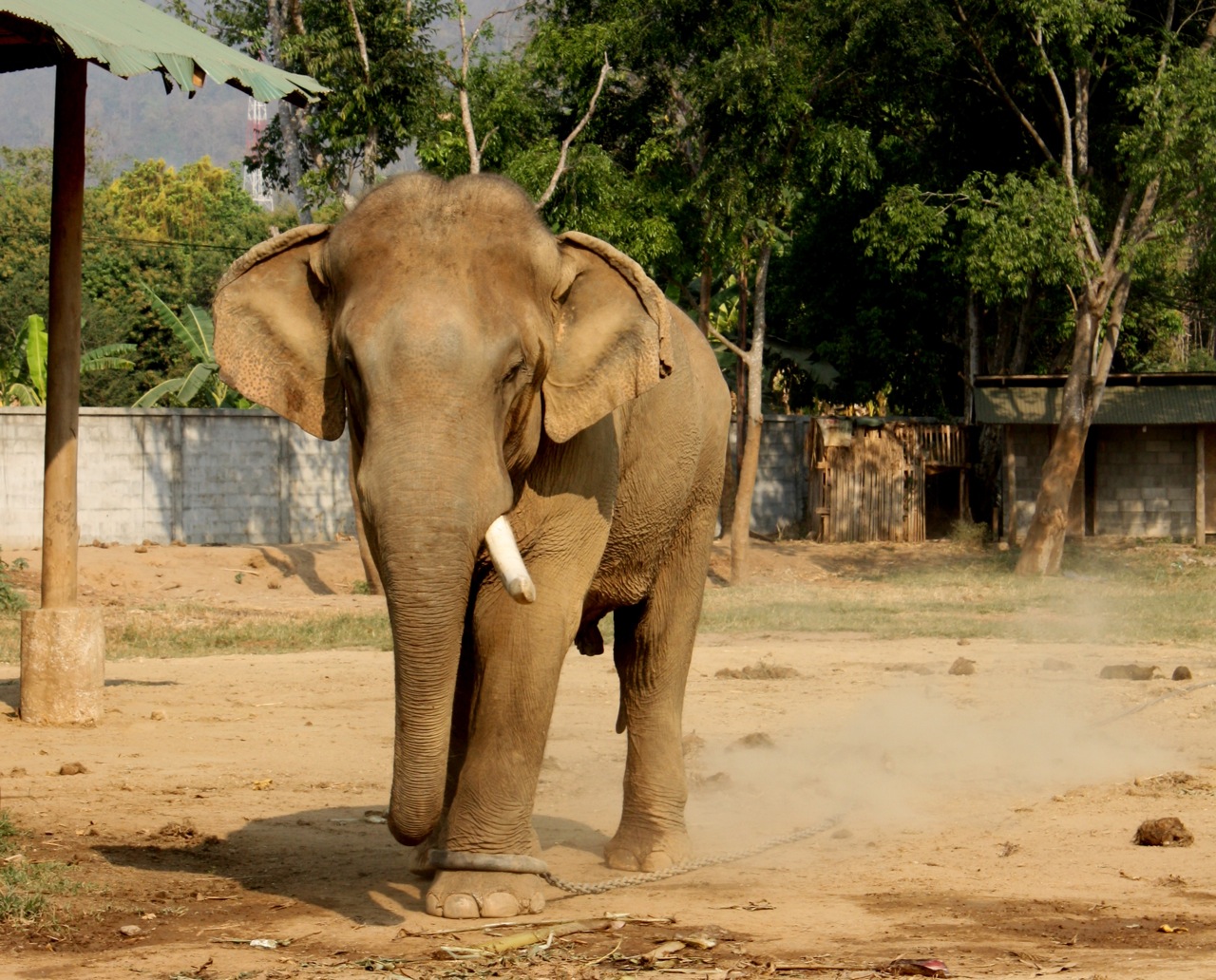 |
| Image: OxOx |
Elephants. Delightful creatures long famed for their intelligence and memory, they have personality, self awareness and have even been seen grieving their dead. They are the biggest animals on land, sometimes approaching 4 metres in height, meaning they have no predators and can afford to be placid and peaceful. People who care for and work with elephants talk about developing real relationships with them. As is so often the case, the elephant has become beautiful in our eyes through the use of its own mind.
Usually. For there is a month every year in a bull elephant's life when all this goes out the window to be replaced with anger, furious aggression and wanton destruction. This period is called musth.
No-one is safe during musth. Zoo keepers and elephant handlers have been killed, whole villages destroyed, even rhinoceroses and other elephants aren't safe. One can truly see their brute strength, headbutts can send people flailing into the air, tusks can inflict terrible wounds, they can even crush people underfoot. Sometimes it can seem horrifically sadistic, like they specifically want to kill someone or something rather than simply throw them out of the way. In all honesty, it makes them all the more human. A reminder that with great intelligence comes great responsibility.
Much of the details of musth are not fully understood, due to the really big, angry elephant. It's known that testosterone levels rise by as much as 60 times, but it's unknown whether this is the main cause or just a factor. There is also a secretion of a thick, tar-like substance called temporin from the sides of the head which trickles down into the elephant's mouth. Not enough is known about the stuff since attempting to sample it... well, there are better ways to die, but it may be that the elephant reacts to the temporin in some way. There is also a swelling of the temporal glands, which press against the eyes and cause terrible pain. And there is the continuous dribbling of urine. It all seems like the elephant finds it almost as unfun as everyone else.
Musth is something of a right of passage for a young elephant as they enter it in their early twenties. It seems that musth in younger elephants is inhibited by the presence of their elders and it peaks at the age of 30 or 40. Mid life crisis? Once they start hitting their 50s they leave such things to the young'uns, seldom entering musth at all.
The reason for musth seems to have something to do with breeding. Like most things, really. It allows bulls to go nuts and mate, ensuring that it isn't just the one dominant male who sires all the young all year round. Female elephants are highly seasonal when it comes to conceiving, so bulls will want to musth when the time is right. On the other hand, while an elephant in musth is bad, two elephants in musth is worse. They could even make the collective noun for elephants in musth a 'fight' or something like that. Yeh, we got terrible problems with increased testosterone levels, mindless aggression and thick, tar-like substances, too. It's called St. Patrick's Day, and it ain't pretty.
The thing about elephants, something you don't actually hear about too often, is they are actually extremely dangerous. People are killed by zoo and circus elephants every single year, and these are the trained and tamed ones. Wild elephants kill hundreds more annually, particularly in areas where human habitation encroaches on elephant territory and migration paths. It's seldom enjoyable to dwell on the darker side of a friend's personality, but when that friend is 4 metres tall, weighs 6 tonnes and gets a bit irritable sometimes, it's probably a good idea to keep it in mind.

No comments:
Post a Comment